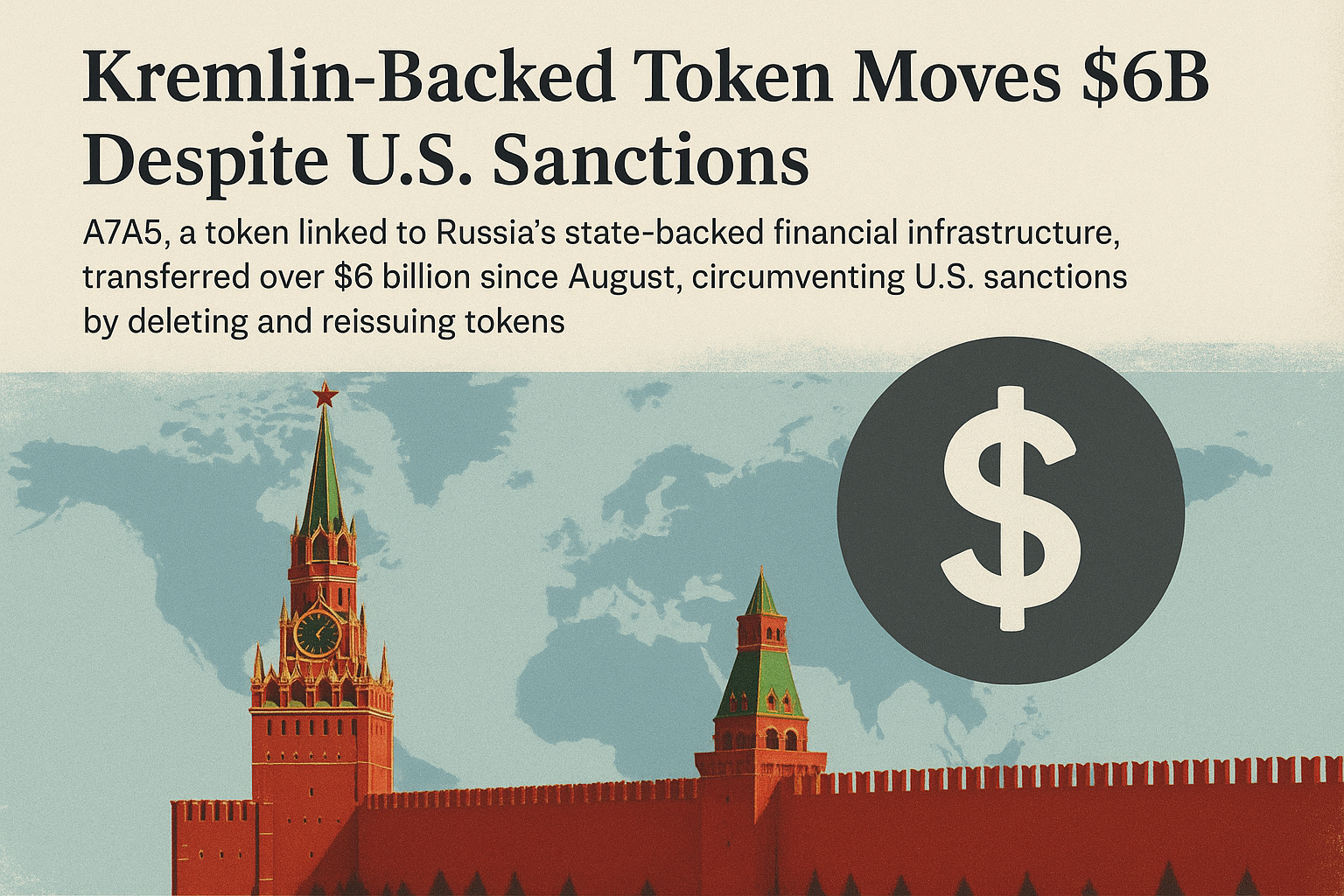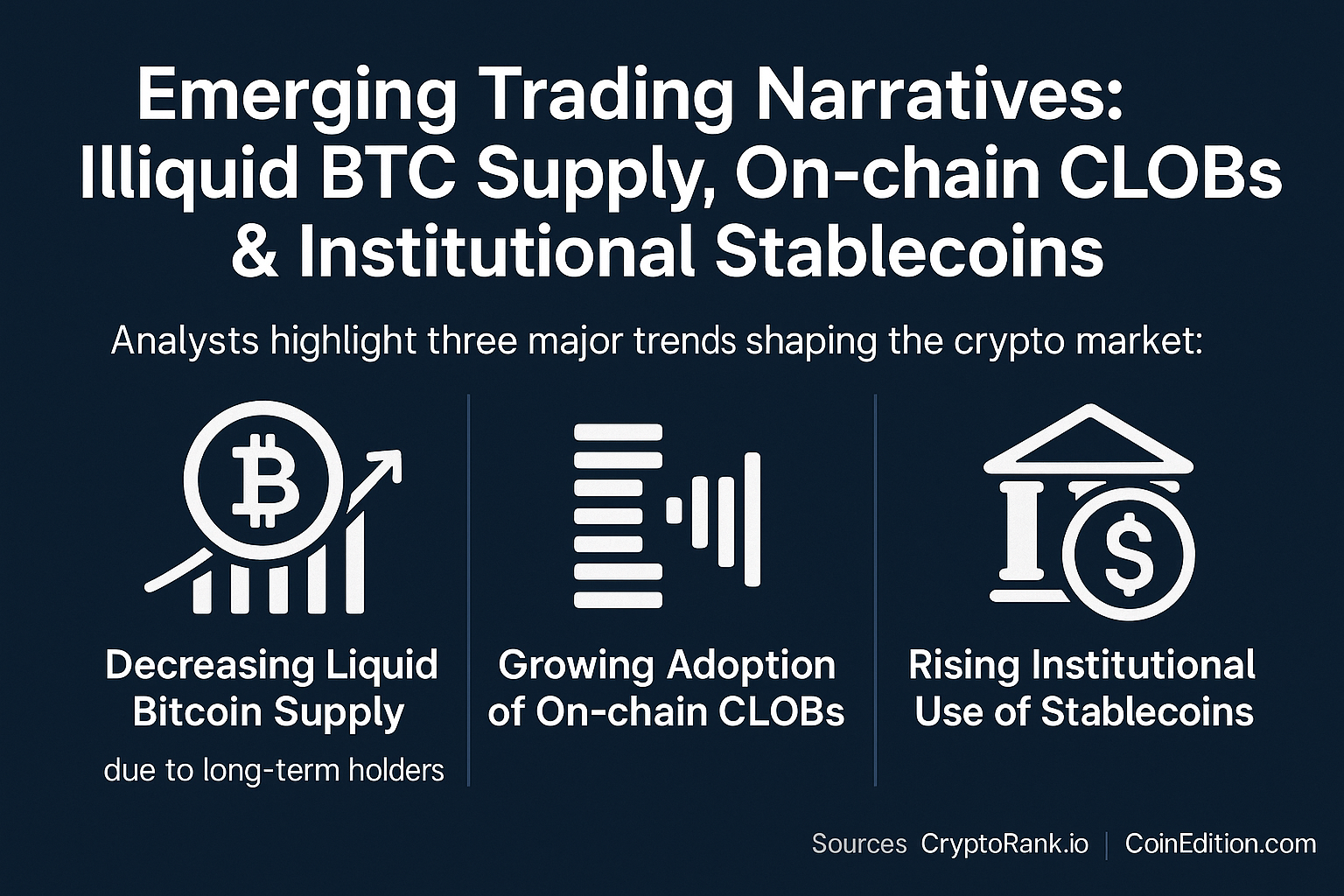In a move that has startled regulators and underscored the growing sophistication of state-linked crypto networks, a Kremlin-backed token known as A7A5 has reportedly facilitated over $6 billion in transfers since August, according to the Financial Times. The token, tied to Russia’s state-backed financial infrastructure, has become a powerful tool for navigating around U.S. sanctions—by exploiting blockchain’s programmable nature to delete and reissue tokens, effectively erasing their transactional trail.
This revelation marks a new phase in the geopolitical chess game between Western financial systems and nations seeking autonomy from them. For years, the U.S. dollar’s dominance and SWIFT network have given Washington unparalleled leverage to enforce sanctions. But now, blockchain-based digital instruments are starting to chip away at that power, offering sanctioned entities a lifeline in an otherwise closed global economy.
The Mechanics Behind the Circumvention
Unlike conventional cryptocurrencies such as Bitcoin or Ethereum, the A7A5 token operates within a state-controlled digital infrastructure, possibly linked to Russia’s central bank initiatives. Its design enables token “burning” (deletion) and “reissuance,” a mechanism that resets ownership history. This means that once assets are flagged or frozen by international monitors, new tokens can simply be created, mimicking the value of the old ones but free from any traceable ties to previous transactions.
Experts suggest that the process involves off-chain coordination between financial intermediaries loyal to state-backed systems. These intermediaries act as digital vaults, mirroring balances and ensuring that no liquidity is lost during reissuance. In essence, this practice forms a parallel monetary system, leveraging cryptographic flexibility to bypass traditional compliance controls.
A Broader Trend in Digital Geopolitics
Russia’s use of tokenization as a sanctions workaround is not occurring in isolation. Similar experiments have been reported in Iran, North Korea, and Venezuela, where nationalized crypto systems and proxy wallets have become tools of economic survival. These efforts often rely on semi-permissioned ledgers, where control remains centralized but operations mimic decentralized efficiency—granting the illusion of openness while maintaining tight political oversight.
What makes the A7A5 case particularly significant is its scale. Moving $6 billion in under three months signals not just a technical test but an operational deployment. It demonstrates that blockchain-based sanctions evasion has matured from theory into practice—and that governments are beginning to use digital finance as a weaponized instrument of sovereignty.
Washington’s Dilemma
The U.S. Treasury Department and the Office of Foreign Assets Control (OFAC) now face an unprecedented enforcement challenge. While traditional sanctions rely on monitoring bank transfers and correspondent relationships, blockchain ecosystems operate beyond those choke points. Even if major exchanges cooperate with Western authorities, smaller or state-run platforms can operate in legal gray zones, using anonymity-enhancing technologies to obscure origin and destination points.
Analysts warn that as blockchain architectures evolve, the line between financial innovation and geopolitical defiance will blur further. Once considered tools for open finance and inclusion, tokenized systems may soon become state-controlled digital battlegrounds—each with its own currency, infrastructure, and alliances.
The Bigger Picture: Tokenization Meets Realpolitik
The rise of the A7A5 token is a wake-up call for global regulators. It illustrates that tokenization, once hailed as a democratizing force for finance, can also entrench authoritarian resilience. By turning code into compliance-proof capital, nations under sanction can maintain liquidity, fund industries, and engage in shadow trade—all without relying on Western intermediaries.
This development could accelerate the fragmentation of the global financial system, where multiple blockchain networks align with different political blocs. As the U.S. and EU tighten crypto oversight, rival powers may double down on digital infrastructure designed specifically to evade it.
The question now is whether global finance can adapt fast enough—or whether blockchain technology will permanently erode the effectiveness of economic sanctions as a geopolitical tool.




